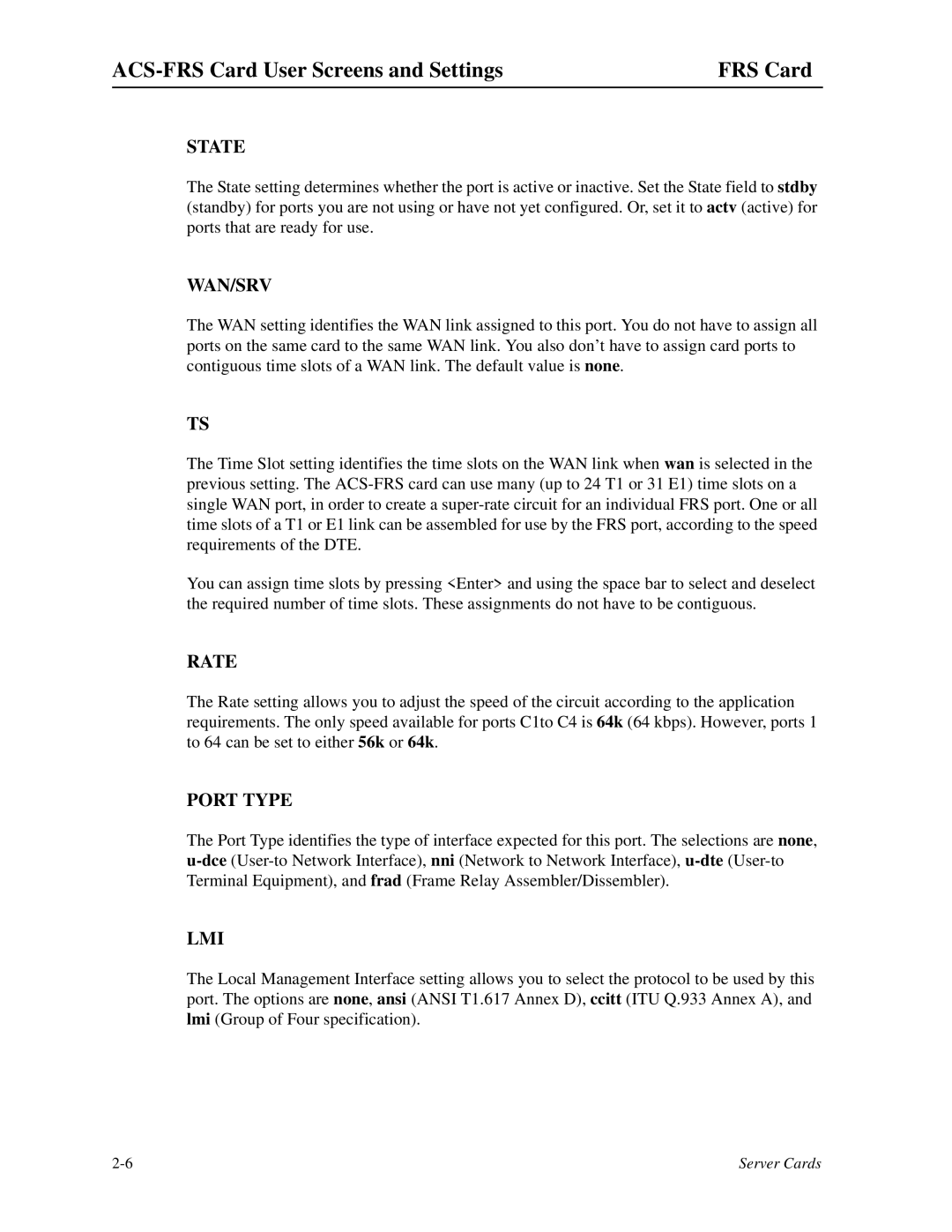| FRS Card |
STATE
The State setting determines whether the port is active or inactive. Set the State field to stdby (standby) for ports you are not using or have not yet configured. Or, set it to actv (active) for ports that are ready for use.
WAN/SRV
The WAN setting identifies the WAN link assigned to this port. You do not have to assign all ports on the same card to the same WAN link. You also don’t have to assign card ports to contiguous time slots of a WAN link. The default value is none.
TS
The Time Slot setting identifies the time slots on the WAN link when wan is selected in the previous setting. The
You can assign time slots by pressing <Enter> and using the space bar to select and deselect the required number of time slots. These assignments do not have to be contiguous.
RATE
The Rate setting allows you to adjust the speed of the circuit according to the application requirements. The only speed available for ports C1to C4 is 64k (64 kbps). However, ports 1 to 64 can be set to either 56k or 64k.
PORT TYPE
The Port Type identifies the type of interface expected for this port. The selections are none,
LMI
The Local Management Interface setting allows you to select the protocol to be used by this port. The options are none, ansi (ANSI T1.617 Annex D), ccitt (ITU Q.933 Annex A), and lmi (Group of Four specification).
Server Cards |
